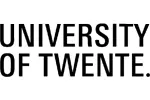We're moving! This site will be relocating to goingto.university in 2026. Please update your bookmarks to the new address.


| The award | How you will study | Study duration | Course start | Domestic course fees | International course fees |
|---|---|---|---|---|---|
| BSc | Full-time | 3 years | September | - | - |
This English-taught bachelor's programme focuses on developing and improving electronics-based systems. You will study and work on high-tech applications, such as robot arms for surgery or sensors for health applications. Check out the study programme or find out more about why you should choose Electrical Engineering at the University of Twente.
Developing and improving electronics-based systems
The Bachelor's programme in Electrical Engineering will equip you with knowledge and skills that are essential in almost all areas of technology (electronics, data storage, communication, antennas, user interfaces, energy storage, sensors, control, signal conditioning, robotics and optics). Electrical engineers are highly employable, largely because their training encompasses a branch of science rather than a specific profession. Whatever career path you decide on, as an electrical engineer you will invent your own future. This is one of the best programmes you can take in terms of the excellent job opportunities it provides.
Some examples of Electrical Engineering
Healthcare
Telecommunication
Safety & Sustainability
Take a look at the study programme to find out what you can expect during this bachelor's programme.
Why study Electrical Engineering at the University of Twente?
These are some great reasons to study Electrical Engineering in Twente:
Want to know more about this bachelor's programme?
Visit the Open Days or sign up to be a student-for-a-day to make sure that this bachelor's programme is the best choice for you. Please do not hesitate to contact us for more information or find out how to apply.
International students: Non-Dutch students should have secondary school qualifications comparable to the Dutch VWO diploma (good A level results or International Baccalaureate) with good grades in Mathematics and Physics as compulsory subjects. As the programme is entirely English-taught, a high level of English proficiency (Cambridge English B1 level, IELTS minimum 6.0, or equivalent) is also required. Click here for more information. Students with an international diploma are advised to contact the Admission Office of the University of Twente early on. The Admission Office will then determine whether you meet the admission requirements for the Bachelor’s programme in Electrical Engineering.
Below are some suggested courses at other providers that you may also be interested in:
Consider a Foundation or Pathway course at University of Twente to prepare for your chosen course:
If you do not meet the entry requirements for this course then consider one of these courses from another institution:
There are 85 other courses listed from University of Twente. A selection of these are displayed below:
Join the StudyLink email list and never miss a chance to turn your study abroad dreams into reality!

Find out more about studying in the Netherlands